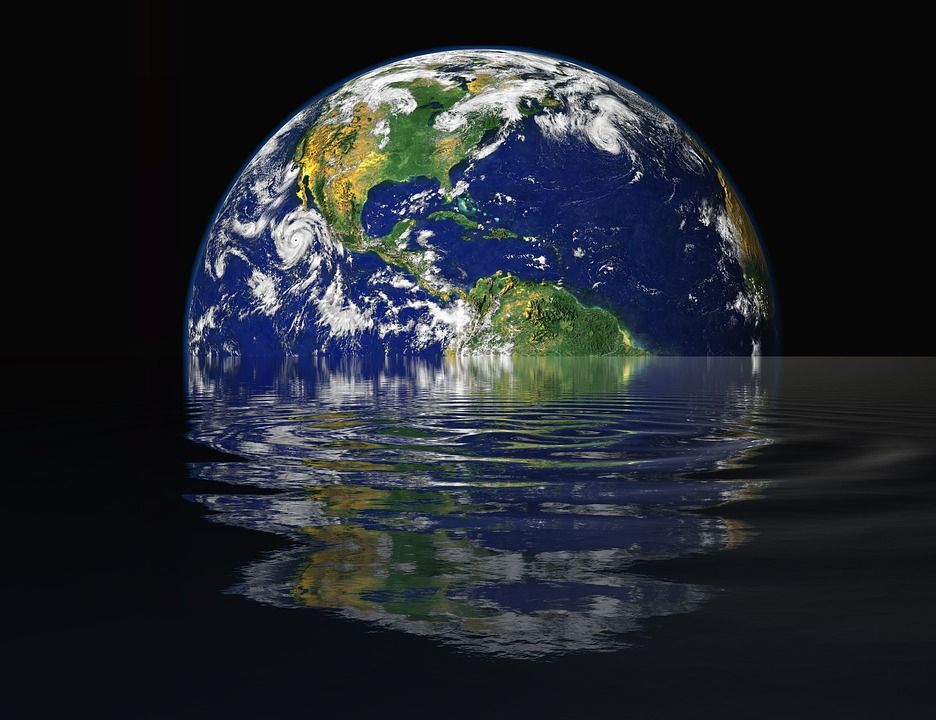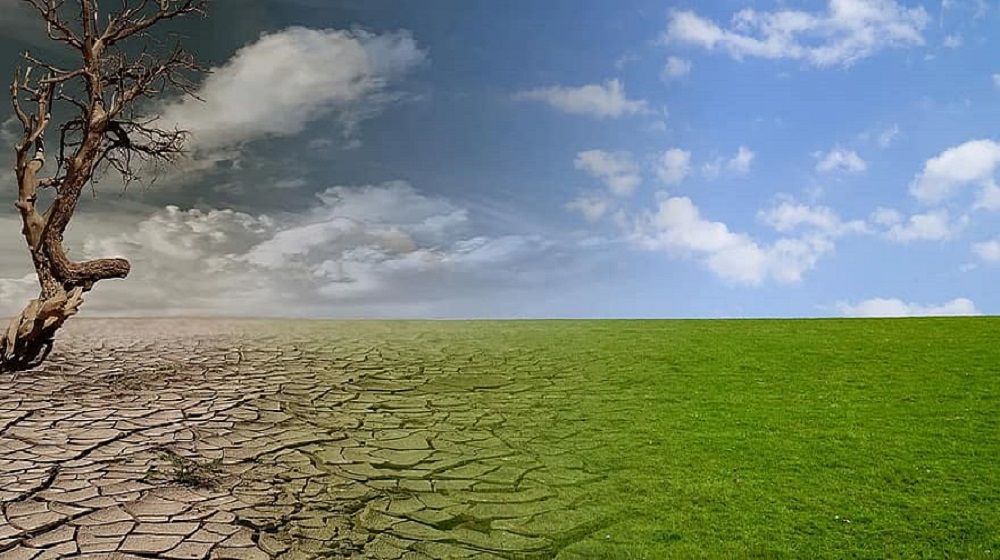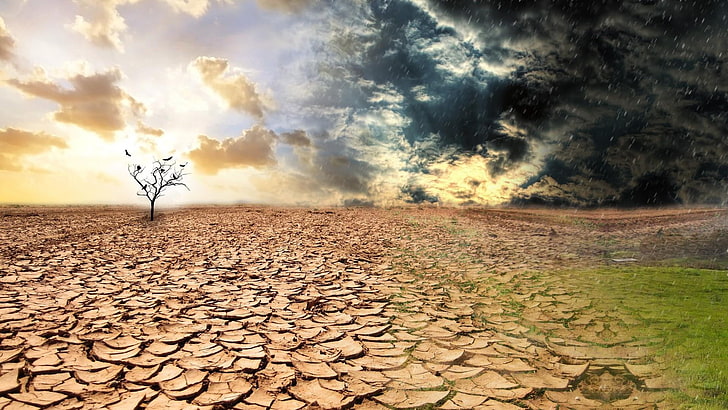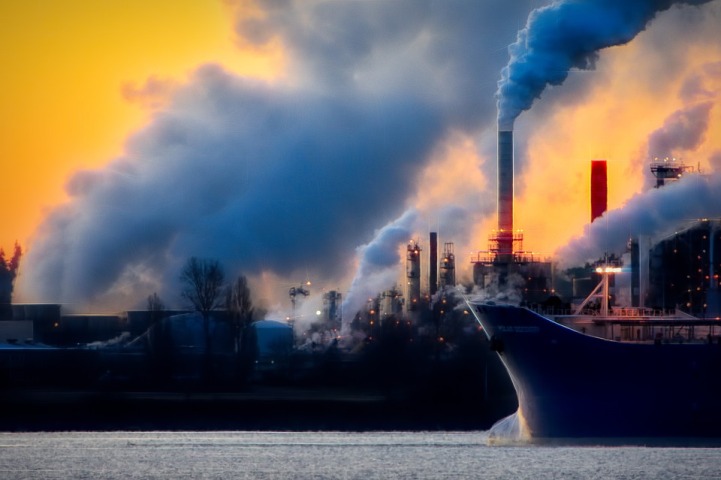Climate change can have a direct impact on your bank account i.e. on your pocket.
It is not that only the prices of things will increase and every month your bill will rise. If you live in areas where floods or hurricanes are more likely, your home may be destroyed or your job may be lost.
Since the year 1980, the number of days in a year has almost doubled when the mercury remains beyond 50 degrees Celsius. According to the latest report of the United Nations Intergovernmental Panel on Climate Change (IPCC), even after reducing greenhouse gas emissions, the earth’s temperature may increase by 1.5 °C by the year 2040. With the temperature rise, the occurrence of natural calamities like storms, droughts and floods is also expected to increase, which will increase the risk to the lives of individuals. Due to human activities, the temperature of the world is increasing and due to this climate change has now become a threat to every part of human life. Climate is the average weather of a place over a long period of a few years, and climate change is a change in those average conditions.

What is the impact of climate change?
The way there has been a sudden change in natural events is the result of climate change. The number of storms has increased, the frequency of earthquakes has increased, the magnitude of floods in rivers have raised more than ever before, which is presently affecting the means of life and survival. If the temperature continues to rise, some areas may become uninhabited and fields may turn into deserts. In some areas, due to the increase in temperature, the opposite result can also happen. Heavy rains can cause flooding.
If the temperature is not kept within 1.5°C then
The only way to control the temperature of the earth is that the countries of the world to come together on this issue. Under the 2015 Paris Agreement, all the countries of the world had promised to control carbon emissions so that global warming would not be allowed to go above 1.5 °C.

With the coming changes in the weather, the risk of crop failure due to such happenings will be high. This can affect our daily needs and facilities like food, water and electricity, and their prices can increase. Climate change will also have an impact on people’s health and their expense on it will grow. Talking about homes, with climate change, people’s use of air conditioners and heaters will increase to stay in the rising heat and harsh cold. That is, energy consumption will increase and your expenditure will also increase.
1. The prices of food items will increase
The most severe effect of climate change will be on crops. In current years, there has been an increase in the occurrence of natural disasters like drought, flood, fire and storm. Scientists expect that if the temperature of the earth continues to rise like this, then things will get complicated in the coming time.
Due to frequent droughts and a temperature rise, the number of people engaged in agricultural work will start decreasing. Experts say that people will lose their livelihood and the impact will be on production as well as on the availability and prices of food grains.
2. Water and electricity bills will increase
The rise in electricity prices will not be the same everywhere, because “it depends on how electricity is produced and what subsidies governments provide. But in countries that depend on hydroelectric projects for electricity and will be impacted by drought due to climate change, the impact on electricity costs is bound to happen.
3. Accident Insurance Prices Will Rise
On the one hand, the prices of insurance for the agriculture sector, homes and all kinds of emergencies are rising, on the other hand, many insurance companies are rejecting those consumers whom they believe to be more at risk. As the damage caused by climate change increases, it is possible that the cost of insurance will also increase.
4. Health expense will increase
Air pollution has a bad effect on human health. According to the World Health Organization, about 7 million people die every year due to air pollution.
5. Slow economic growth
If the Earth’s temperature rises by 3.2 degrees Celsius, then the worst scenario (a fall in GDP of up to 18 per cent) can be seen in the middle of the century. Other estimates speak of a possible decline of around 10 per cent in GDP over 80 years. Estimations vary due to measurement methods. But one thing is clear that the economic side effects are increasing rapidly.
Climate change is impacting various globes of everyday living. It is one of the biggest issues facing us today. From shifting weather patterns to rising sea levels that have made certain areas around the globe increasingly prone to flooding, the largely negative effects of climate change are an existential threat to planet earth.

Our atmosphere is designed to keep some of the sun’s heat and ensure that the earth remains inhabitable—thanks to greenhouse gases (GHGs). These gases (including CO2, water vapour, methane, and nitrous oxide) occur naturally and have been essential to the success of life on earth.
However, human activity such as deforestation, industrialization and extensive scale agriculture means that there are record levels of GHGs in the atmosphere today. This has led to deeper absorption of thermal radiation from the sun, hence global warming.
Tags: Climate Change, Greenhouse Gas Emissions, flooding, Paris Agreement, Agriculture Sector, deforestation, industrialization.

